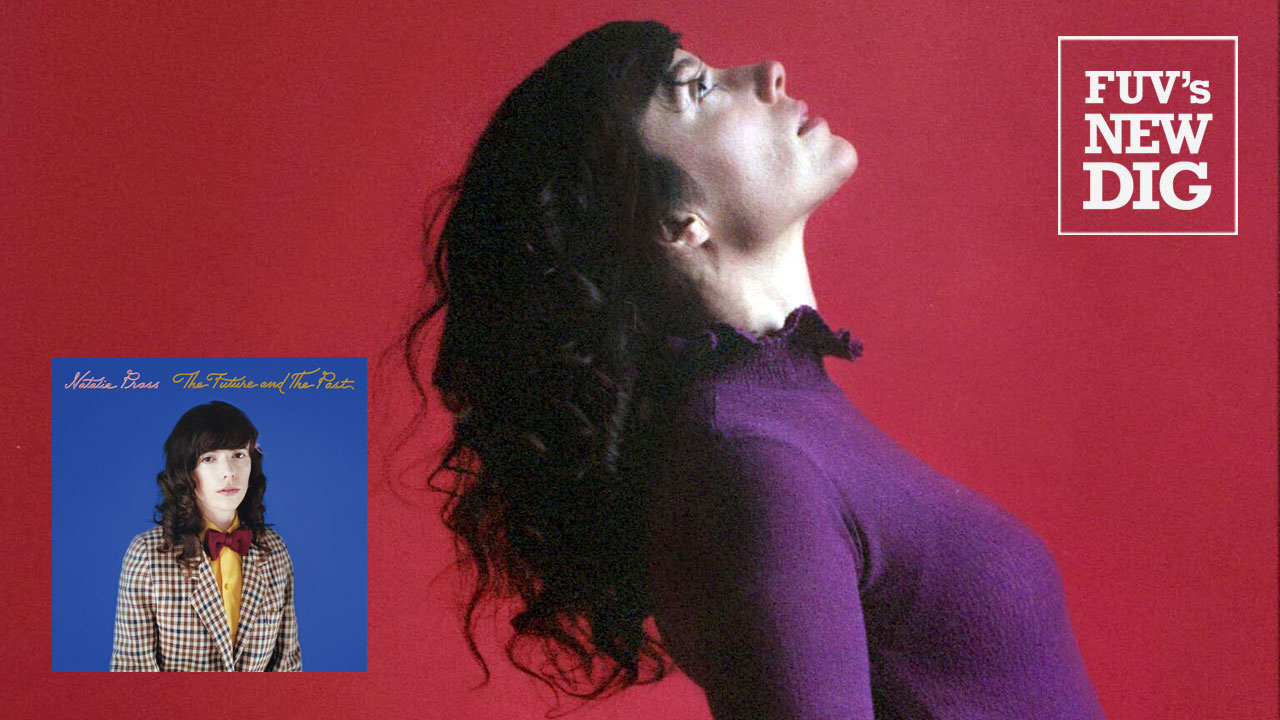Natalie Prass

Natalie Prass (photo by Tonje Theilsen)
Natalie Prass
The Future and The Past
ATO Records
Barely two minutes into the delectable groove of "Oh My," the opening salvo of Natalie Prass's second album, The Future and The Past, it's apparent that a bold gambit is underway. It's a marvelous strategy, revealing itself track by track as subversive on multiple levels. But knowing a bit of background makes Prass's gutsy maneuver, and firm control of her vision, even more admirable.
In a recent interview with the Evening Standard, the Virginia Beach-bred, Richmond-based (and Nashville-surviving) songwriter candidly discussed her decision to scrap much of her intended sophomore release in the dazed aftermath of the 2016 general election. It's an about-face that she bluntly chalks up to genuine existential despair, mourning the toxicity and misogyny of American politics and culture. It also rendered a romantic breakup, which had inspired the bulk of the intended (and then discarded) songs for her next album, inconsequential when placed side-by-side with a national meltdown, unhinged tweetstorms, and the inferno of #MeToo horror stories.
Struggling to find that balance between her own multi-layered heartbreak and something that ably addressed the world at large, the singer, guitarist, and keyboardist not only disposed of one album's worth of songs, but two, shedding ideas as circumstances constantly changed over a rocky two years. The dozen songs finally recorded for The Future and The Past, wreathed with serpentine, funk-sweetened basslines and ethereal yet muscular assertions of defiance, adroitly tackle all aspects of that conflagration. Importantly, Prass found solace in the galvanizing strength and camaraderie of women, elucidated in the rousing, soaring chorus of "Sisters" and the slinky "sing out your voices" affirmation of "Ain't Nobody."
With her new material, Prass shed the Sixties-euphoric formula she'd found on her eponymous 2015 debut album, produced by Matthew E. White and using his Spacebomb studio crew. Although she wrote several new songs with White, like the masterful, minor-key "Hot for the Mountain," and recorded again at Spacebomb, The Future and The Past is very much a Prass-guided production; she was her own Jimmy Jam and Terry Lewis. And there, with the footprints left by that storied Minneapolis production duo, lies one more layer of her exquisite album.
The Future and The Past is not only a reflection of Prass's own state of mind, but a tender, artist-to-artist love letter to the legacy of Janet Jackson — evident in tracks like the yearning "Never Too Late" and the breezy gem "Short Court Style." Prass's bridge to Jackson is inspired; Jackson's discography, since the release of Control, her 1986 cri de cœur of autonomy, has venerated feminism, independence, rebellion, sociopolitical protest, and uninhibited female sexuality via scores of chart hits, like "That's The Way Love Goes," and deeper tracks, like "New Agenda," "Throb," or "State of the World." (Prass released a cover of Jackson's "Any Time, Any Place" back in 2014 as the B-side to "Bird of Prey.")
It's a lovely touch that the springtime release of Prass's The Future and The Past neatly coincides with the 25th anniversary of the release of janet., one of the most influential — and woefully underestimated — albums of the Nineties. Fanning out behind Jackson's feminist wake are plenty of predecessors, like Sade Adu, Minnie Riperton, Nina Simone, Madonna, and Chaka Khan, and the forward-gazing women of so-called "New Jill Swing" and an ongoing wave of hip hop, pop, and R&B powerhouses like TLC, Lauryn Hill, SWV, Mary J. Blige, M.I.A., Beyoncé, SZA, and more. Add Prass to that army of activists who deftly write songs of defiance that are as danceable as they are declarations of fortitude.
Women don't need to belt to the rafters to make a salient point, and like Jackson, Prass — who possesses a stunning and supple voice — wields a steely, coolly whispered line like a sabre. "What is lying to a cheat?" she seethes in "Oh My," grieving a world broken by "psychedelic confusion, mass illusion."
The somber, jazzy underpinnings of the arresting "Hot For The Mountain," which gives way to an ocean tide of Spacebomb strings, is a clenched fist of revolution cloaked in the patina of a sensual midnight reverie. The wistful "Lost" is a resurrection— a spare, haunting, and just plain gorgeous lament of a dead love affair — while "Ship Goes Down" sails a similar route, with Prass artfully (and indirectly) positing America as that errant, unstable lover.
In another affectionate turn, Prass's fragile ballad "Far From You" directly resurrects the crystalline vocals and phrasing of the late Karen Carpenter, whom Prass admires and briefly portrayed in HBO's defunct series "Vinyl," with every word alighting like a golden butterfly.
The Future and The Past conveniently leaves out the uneasy "present" in its title — but it's this tormented moment in American history that defines Prass's stunning achievement. She's aghast, scarred, weary, and mad as hell, but still grasping at straws of reparation, the power of love, and the infinite hope of transcending turmoil. Storms, rain, and hurricanes might rage in her lyrics, but there's the protective shield of sisterhood too: a healing balm. "Come on, nasty women," she beckons in "Sisters," calling out the multitudes of women who feel her pain, and that rallying mantra resonates like a beautiful battle cry.
Listen to an FUV Live concert with Natalie Prass, recorded at Rockwood Music Hall, broadcat on 90.7FM on Monday, June 18, at 8 p.m. EDT and streaming on demand.

